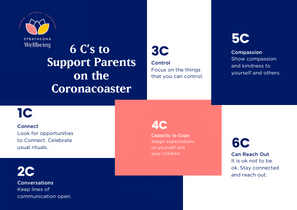IN the Media: The Parent Website, 21 September 2021
As students, teachers and parents wait for the return to classroom learning, it’s understandable that some might be feeling flat and deflated. Educators remain concerned about their school community’s physical and mental wellbeing. And while we know parents and students have risen mightily to the challenge of remote learning, showing us they’re capable and resilient when it’s needed the most, we also know that behind the scenes, most families are experiencing highs and lows.
When struggling through periods of low mood and reduced motivation, there are six simple things you can do to boost the energy of your household and help combat lockdown blues you or your child might be feeling.
Connect – Look for opportunities to connect and celebrate
During periods of social isolation, it’s important to look for opportunities to connect with your family. Building a strong relationship with your child will help them feel safe and secure during the uncertainty of the pandemic.
Connection can be fostered through casual, everyday interactions or through planned activities. Casual connection involves showing interest and listening attentively without distractions. Put your phone down or switch off your computer screen for a few minutes so that you can focus on what your child is telling you. Planned connection consists of spending time together through set activities such as exercise like bike rides, a daily coffee and hot chocolate break or working together in the garden.
Encouraging your child to connect with others in person or online (depending on current restrictions) is a great way to ensure they remain social. You can do this by saying hello to neighbours, having an impromptu conversation with a barista or café worker, or doing a shared activity with a grandparent or friend on Zoom.
Incorporating new family rituals and celebrations into your lockdown routine – like regular pizza or movie nights – creates an occasion to sit down as a family and spend quality time together.
Even a regular five-minute dance party to re-energise the household can be a great tradition that resets the mood and drives positive connection when things are beginning to feel tough.
Conversations – Keep lines of communication open
Listening to your child’s concerns and validating their feelings and experiences will help them feel safe and secure. Provide them with perspective and work together to solve a problem rather than forcing a solution onto them. Focus on talking about good news, while also limiting the number of negative news stories you share.
Online communication is important during this period as it enables children to maintain relationships with friends, classmates, extended family and their wider community. It’s reasonable for children to spend more time on devices during remote learning, and for older children to want to increase the amount of time spent on social media, though it’s important to still set some boundaries.
Having an awareness of what your children are accessing online and who they are speaking with is important, though be sure not to invade their privacy. Turn on the parental controls and manage time limits on devices – this will help children continue to speak with the people they care about, but in a well-managed, safe way.
Control – Focus on the things you can control
If you or your child are feeling overwhelmed, take time to focus on things you can control. Empower your child with authority to make decisions in order to give them a greater sense of control over their lives. This can include choosing the route to take on a lunchtime walk, what toy they take to an online lesson or selecting a recipe to prepare together.
It’s equally important to recognise and articulate the things we can’t control. This can be done by writing the concern onto a piece of paper, then tearing it up or throwing it away to symbolise it leaving the child’s mind. This can be a fun activity to do as a family and may even be helpful for parents to participate in too. Once identified, encourage your child to not focus or stress about the things that are out of their control.
Capacity to cope – Adapt your expectations
Being able to adjust expectations is a critical skill in resilience and in coping during difficult times. Set achievable daily or weekly goals for yourself and your children. This provides a greater sense of control and increases the capacity to cope with change. Rather than setting the expectation of a top result on an exam, reset the expectation to get one more question correct in a weekly test. Write these goals down so you can tick them off over the week and build a sense of achievement.
Building a capacity to cope can also be achieved through routines. Whilst we may love the sleep-ins that remote learning affords us, the loss of routine can result in greater uncertainty in your child’s life. When things go wrong (which they often do), having a routine for your child to fall back on is essential in providing a sense of security and familiarity.
Everyone, parents included, have personal and emotional limits. These include how much sleep we need, how much media we can healthily consume and how much stress we can take. Recognising and embracing your and your child’s limits is essential to understanding what you can cope with and when downtime is required.
The best way to help your child adapt to their expectations and identify their capacity to cope is by proactively doing the same. Take a break if you need one and show them how to do the same.
Compassion – Show compassion and kindness to yourself and others
It is crucial to be kind to yourself and show self-compassion during these unprecedented times. Celebrate the small wins where possible, allow time to do simple things that make you feel good and encourage the same for your child. Don’t sweat the small stuff – it’s ok that our expectations and standards are different during this time.
Compassion for others is also essential. Doing something nice for another person such as baking cookies for a neighbour, sending a homemade gift to a friend, sending a video message, sharing a book, or walking someone’s dog will make you and the recipient of your kindness feel good.
Can reach out – It’s okay not to be okay
It is crucial that as the adult in our children’s lives, to accept and recognise that it is ok to not be ok all of the time. If you or your child is really struggling, tap into your network of support. Reach out to a friend, family member, school community or organisations like Beyond Blue if you need added support.
About the authors
Kerri Rhodes, Sharon Turner and Annie Yang are school psychologists at Strathcona Girls Grammar, a Member School of ISV.


